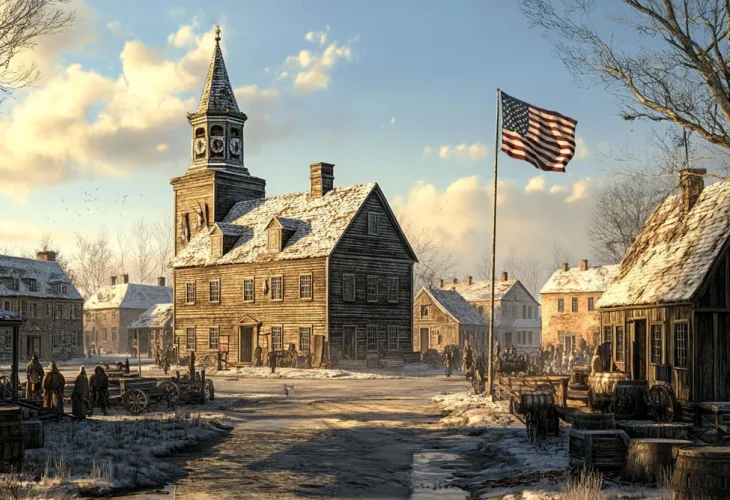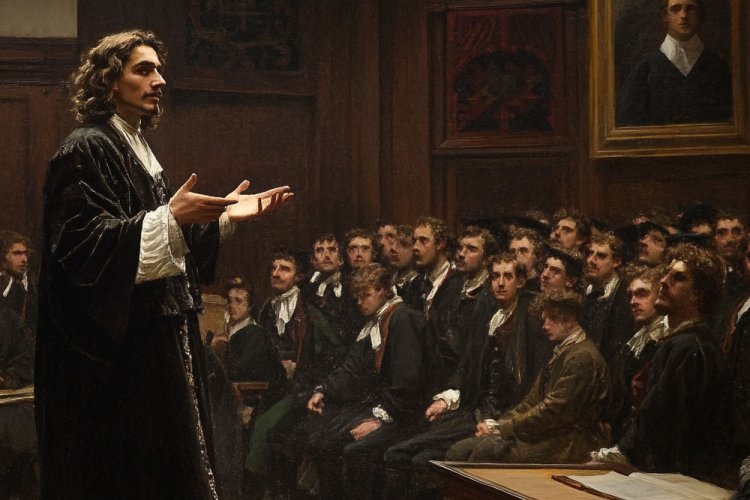How Judaism Shaped America: A Historical Journey
Few know the profound influence Torah laws had on the founders and lawmakers of the United States over the years. Some founding fathers even envisioned the Torah as the official law book of the new nation.

Few realize the significant influence Torah laws had on the founders and lawmakers of the United States over the years. Remarkably, some founding figures of America wanted the Torah to be the official law book of the United States. Rabbi Kalman Lawrens tells us: "The earliest legislation of the New England colonies was entirely based on the Scriptures. At the first gathering in New Haven in 1639, John Davenport clearly pointed to the supremacy of the Bible as the constitutional and moral foundation of the colony, stating: 'The Scriptures provide a perfect rule for all manners of conduct and governance among people, in all duties owed both to the divine and to fellow humans... the word of the divine shall be the only law to be considered in organizing affairs of governance in this estate'".
Later on, New Haven lawmakers adopted a collection of laws—the Code of 1655—with 79 statutes, half of which drew directly from biblical sources, and all, in fact, found roots in the Hebrew Bible. Plymouth Colony held a similar set of laws to that of Massachusetts Assembly, which in 1641 adopted "The Massachusetts Body of Liberties," based almost entirely on the Torah of Moses.
In alignment with this, Hebrew was also widely used. It gained such popularity in the late sixteenth and early seventeenth century that certain Yale students even delivered their degree acceptance speeches in Hebrew! Universities like Harvard, Yale, Columbia, Brown, Princeton, Johns Hopkins, and the University of Pennsylvania offered Hebrew classes—remarkable given that in England, no university offered such a course. In these American institutions, studying the Bible and Hebrew was a curriculum requirement, and students could present their papers in Hebrew, Latin, or Greek.
Abraham Katsh highlights in The Biblical Heritage of American Democracy: "During the American Revolution, the interest in Hebrew was so widespread that stories circulated of certain Congress members proposing that English be officially banned in the U.S., with Hebrew taking its place."
The initial design for the official seal of the United States—as proposed by Benjamin Franklin and John Adams in 1776—depicted the Israelites crossing the Red Sea. The surrounding motto was: "Rebellion to tyrants is obedience to Hashem."

The inscription on the Liberty Bell in Philadelphia's Independence Hall is a direct quote from Leviticus (25:10): "Proclaim liberty throughout all the land unto all the inhabitants thereof."
The first Jews arrived in America with Columbus in 1492. Among the early Spaniards who came to Mexico with conquistador Hernando Cortes in 1519 were Jews who had recently converted to Christianity.
As for North America, documented Jewish history began in 1654, with the arrival of 23 Jewish refugees from Recife, Brazil (where the Dutch lost their hold to the Portuguese) to New Amsterdam, later becoming New York. Despite New Amsterdam also being a Dutch territory, Governor Peter Stuyvesant did not want them there. The only reason the Jews were not expelled was because the "Dutch West India Company," largely reliant on Jewish investments, prevented it.
It is estimated that by 1776, at the time of the American Revolution, about 2,000 Jews lived in America overall (men, women, and children), yet their contribution to the events was immense. For instance, in Charleston, South Carolina, almost every Jewish man fought for liberty. In Georgia, the first patriot killed in the war was a Jew (Francis Salvador). Moreover, Jews provided significant financial support to the patriots.
Among the financiers, Chaim Salomon was the most prominent, lending substantial sums of money to the Continental Congress. In the war's final days, Salomon rushed $200,000 to the American government. The funds were never returned, and he died bankrupt.
President George Washington remembered the Jewish contribution, and when the first synagogue opened in Newport, Rhode Island, in 1790 (a Sephardi synagogue called "Touro Synagogue"), he sent his blessings: "May the children of Abraham residing in this land continue to merit and enjoy the goodwill of the other inhabitants. While every one shall sit in safety under their own vine and fig tree and there shall be none to make him afraid."
Notice the reference to "vine and fig tree." This unique phrase comes from the prophet Micah, who prophesied about the messianic era: "In the last days it will come to pass, that the mountain of Hashem's house shall be established on the top of the mountains, and shall be exalted above the hills; and people shall flow onto it. And many nations will go and say: Come, let us go up to the mountain of Hashem, to the house of the God of Jacob; and he will teach us his ways, and we will walk in his paths: for the Torah shall go forth from Zion, and the word of Hashem from Jerusalem. And he shall judge among many people, and rebuke strong nations afar off; and they shall beat their swords into plowshares, and their spears into pruning hooks: nation shall not lift up a sword against nation, neither shall they learn war anymore. But they shall sit every one under their vine and under their fig tree; and none shall make them afraid: for the mouth of Hashem Tzevaot has spoken it."

